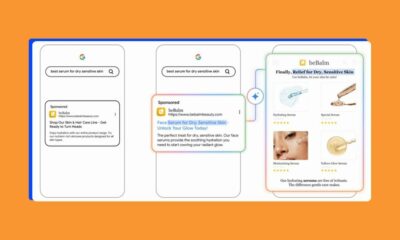MARKETING
Does your organization need a marketing automation platform?

Marketing automation platforms are a critical part of the martech ecosystem for many businesses, offering many benefits by streamlining manual B2B marketing tasks, including lead management, email campaign development and landing page creation.
But deciding whether or not your company needs a marketing automation platform calls for the same steps involved in any software adoption, including a comprehensive self-assessment of your organization’s business needs, staff capabilities, management support and financial resources.
Marketing automation is often a solution for companies that are growing rapidly and need to scale their efforts. If you have data in multiple databases that cannot be consolidated or are using an email system that can’t deliver the level of behavioral targeting you need, it may be time for marketing automation.
Identify and prioritize your software requirements and the key capabilities you’ll need from the new system. Do your sales reps need real-time access to marketing data? Then native CRM integration is a must-have. Do you have a sophisticated social media presence? Then social marketing management and integration will be important. By knowing what you need, you’ll be in a better position to control the selection process and choose the platform that will most benefit the organization.
Marketing automation is not a one-size-fits-all solution; it’s important to find the right fit. Nearly all companies offer the same basic capabilities for email, website tracking and a marketing database. Additional capabilities vary, however, so it’s important to identify what you need. Is inbound marketing (social media, blogging, SEO) more important than outbound (email)? Are reporting and analytics the key features you need? Is lead scoring a crucial part of your marketing process? Do you need greater capabilities in audience segmentation and personalization?
It is critical to know up front what your goals for the marketing automation system will be. Do you want to improve the quality of leads handed off by marketing to sales? Or increase revenue by increasing conversion at key stages in the buying cycle? Do you want to improve visibility into the buying and sales cycles to optimize marketing engagement? Or do you want to reach the growing portion of your leads that are mobile users? Bring key stakeholders together to establish the organization’s goals.
The odds are that you already have a tech stack in place, (e.g., several standalone tools for social media management, SEO, webinar hosting, etc.). You’ll need to identify them all so you can ask the marketing automation vendor about integration. Many vendors offer app marketplaces, which provide faster access to the participating systems. Virtually all marketing automation vendors offer APIs, but they may be an add-on to the price of the platform.
Every marketer should have an executive sponsor to secure support at the C-level. If you are not the ultimate decision-maker for this purchase, you will need management to buy into the idea before you go any further. Present a compelling case that the benefits of new software vastly outweigh the costs. This could include converting more leads, making sales more efficient and improving campaign ROI.
To maximize your ROI, staff will need training and a willingness to develop and execute new business processes. You may also need to consider several new hires. If your marketing and sales organizations have been operating in silos, they will need to work more cooperatively on lead scoring and routing systems, lead qualification definitions and more effective marketing collateral and communications. Identify someone in the organization who will take the lead on the selection process, as well as who will be using the system once it has been adopted.
This is one of the toughest questions, and ties in directly to understanding why you are adopting a marketing automation platform. If your goal is to increase conversions, you’ll need to know what your conversion rate is before automation in order to measure its impact. If it’s to improve email efficiency, be prepared with metrics on open rates, clicks, etc. In addition to measuring against your marketing goals, it’s wise to measure the depth and breadth of platform usage. Many marketers only use basic email capabilities, which ends up being a costly investment.
Some marketing automation platforms are all-inclusive, while others feature add-on tools and services that can significantly increase costs. In addition to the cost of the software license itself, consider the costs of ongoing services and training, as well as the indirect costs associated with getting staff up and running on the new system (i.e., more cooperation and data sharing between marketing and sales). If you don’t have your own IT or design staff, be sure to ask questions about what these services cost on an hourly basis. For example, if the platform offers templates, find out how many, and how much it costs to customize template design.
Snapshot: Marketing automation
For today’s marketers, automation platforms are often the center of the marketing stack. They aren’t shiny new technologies, but rather dependable stalwarts that marketers can rely upon to help them stand out in a crowded inbox and on the web amidst a deluge of content.
HubSpot noted late last year that marketing email volume had increased by as much as 52% compared to pre-COVID levels. And, thankfully, response rates have also risen to between 10% and 20% over their benchmark.
To help marketers win the attention battle, marketing automation vendors have expanded from dependence on static email campaigns to offering dynamic content deployment for email, landing pages, mobile and social. They’ve also incorporated features that rely on machine learning and artificial intelligence for functions such as lead scoring, in addition to investing in the user interface and scalability.
The growing popularity of account-based marketing has also been a force influencing vendors’ roadmaps, as marketers seek to serve the buying group in a holistic manner — speaking to all of its members and their different priorities. And, ideally, these tools let marketers send buyer information through their tight integrations with CRMs, giving the sales team a leg up when it comes to closing the deal. Learn more here.
Source link
















You must be logged in to post a comment Login